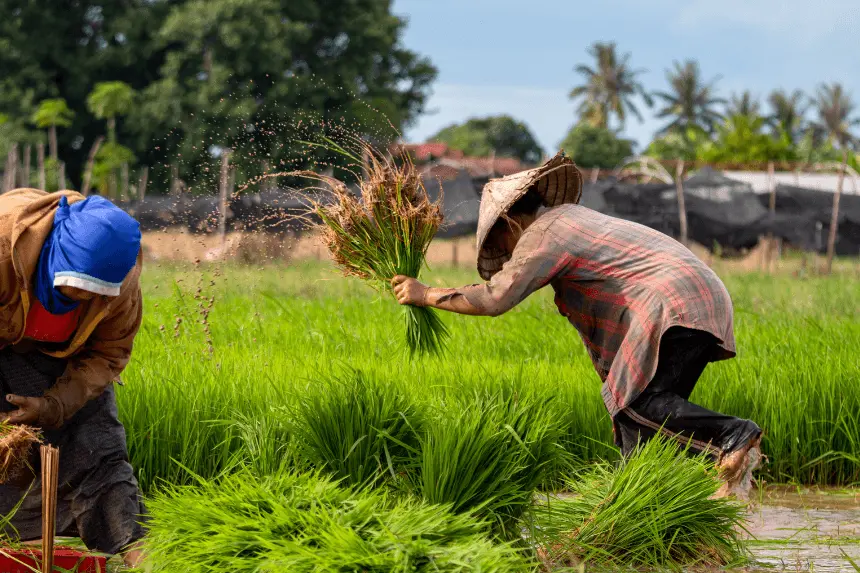A high-profile trial unfolding in Reims, France, has brought the issue of champagne harvest labor abuse into the spotlight. The proceedings involve three individuals accused of exploiting more than 50 undocumented migrant workers during the 2023 grape-picking season. While Champagne is globally celebrated as a symbol of luxury, the realities faced by those who harvest its grapes tell a very different story. This trial offers a chance to confront systemic labor abuses and reshape industry standards.
- What Triggered the Champagne Labor Abuse Investigation?
- Who Are the Accused, and What Are the Charges?
- How Prevalent Is Labor Abuse in Champagne Vineyards?
- How Is the Industry Responding to These Allegations?
- What Changes Are Needed to End the Abuse?
- What Are the Broader Implications of This Case?
- Conclusion
What Triggered the Champagne Labor Abuse Investigation?
In September 2023, labor inspectors responded to a tip-off from a concerned local resident in Nesle-le-Repons, a village nestled in Champagne country. What they discovered was shocking: 57 undocumented workers living in unsanitary and unsafe housing. Recruited through a WhatsApp group targeting the West African Soninke community in Paris, these workers were promised well-paid work but found themselves trapped in conditions far below acceptable standards.
The workers, aged 16 to 65, were crammed into a dilapidated building. There was no clean water, limited access to hot showers, and only spoiled food to eat. One worker described being fed a bowl of rice and moldy sandwiches. Sleeping arrangements consisted of thin mattresses on concrete floors, and bathrooms were filthy.
This discovery laid bare the ongoing issue of champagne harvest labor abuse, an issue that has gone unnoticed or ignored for far too long.
Who Are the Accused, and What Are the Charges?
Three individuals are now facing serious legal consequences. Among them is a 44-year-old woman from Kyrgyzstan, who operated a labor recruitment agency called Anavim. She, along with a Georgian man and a French national, stands accused of human trafficking, illegal employment practices, and housing vulnerable workers in substandard conditions.
According to prosecutors, the workers were forced to work over 10 hours per day with only a 30-minute lunch break. Transported to the vineyards in the back of trucks with no seats or safety equipment, they worked without contracts and received payment that bore no relation to their labor.
The charges against the defendants reflect not only individual misconduct but a broader pattern of champagne harvest labor abuse that continues to plague the industry.
How Prevalent Is Labor Abuse in Champagne Vineyards?
Every autumn, approximately 120,000 seasonal workers are needed to handpick grapes in the Champagne region. Many of them are undocumented migrants or vulnerable individuals who rely on third-party recruitment agencies. This system, while efficient for producers, often lacks proper oversight.
In recent years, there have been multiple reports of maltreatment. In 2023 alone, six grape pickers died of suspected heatstroke in the Champagne and Beaujolais regions. These tragic events underscore the lack of worker protection and raise serious questions about the industry’s labor practices.
Trade unions argue that the reliance on middlemen allows major Champagne houses to evade responsibility. This hands-off approach has made it easier for champagne harvest labor abuse to persist in the shadows. Read another article on the US Navy Drops Harvey Milk Ship Name
How Is the Industry Responding to These Allegations?
The Comité Champagne, the organization representing Champagne producers, has acknowledged the severity of the situation. While insisting that abuse is rare, the group has joined the trial as a civil plaintiff. Their goal is to demonstrate zero tolerance for such practices and to protect the Champagne brand’s international image.
Despite these assurances, labor advocates and unions argue that more needs to be done. The CGT union has called for laws to be amended so that Champagne producers can lose the right to use the “champagne” label if they benefit directly or indirectly from illegal labor.
“It should not be possible to harvest the grapes of champagne using human misery,” said José Blanco of the CGT.
The court case serves as a pivotal moment, showing the disconnect between public-facing industry standards and the hidden realities of champagne harvest labor abuse.
What Changes Are Needed to End the Abuse?
To eliminate champagne harvest labor abuse, a set of actionable reforms is necessary. These steps would protect workers and preserve the ethical credibility of the Champagne industry:
1. Enforce Transparent Recruitment
Recruitment agencies must be certified and audited to ensure they comply with legal and ethical labor standards.
2. Require Written Contracts
Every worker should receive a written contract in their native language, clearly outlining pay, hours, and conditions.
3. Ensure Safe Living Conditions
Housing must meet health and safety codes, with access to clean water, safe electricity, and sanitation facilities.
4. Regulate Transport to Worksites
Workers must be transported in vehicles that meet safety standards, with proper seating and protection from the elements.
5. Hold Producers Accountable
Even if subcontractors are used, Champagne producers must bear responsibility for how workers are treated throughout their supply chain.
Implementing these reforms will help eliminate systemic champagne harvest labor abuse and protect the rights of workers who are essential to the industry’s success.
What Are the Broader Implications of This Case?
This trial is not only about justice for the exploited workers; it’s about setting a new precedent for labor rights in agriculture. If successful, it could lead to broader regulatory changes that affect all producers in the region.
Moreover, consumer awareness is growing. People are increasingly concerned with ethical sourcing—not just in fashion and electronics, but in food and drink as well. If Champagne producers want to maintain their global prestige, they must address the root causes of the champagne harvest labor abuse.
Governments, unions, and industry leaders must work together to create transparent systems that reward ethical practices and penalize exploitation. Only then can the Champagne industry truly claim to be as refined in its ethics as it is in its product.
Conclusion
The trial in Reims is a wake-up call for an industry that thrives on tradition and luxury. The horrifying details of champagne harvest labor abuse uncovered in this case must not be dismissed as isolated incidents. They are symptoms of a flawed system that allows vulnerable people to be exploited in the name of efficiency and profit.
Change is both necessary and possible. With firm regulation, transparent recruitment, and producer accountability, the Champagne industry can move toward a future that values human dignity as much as it does sparkling wine.








